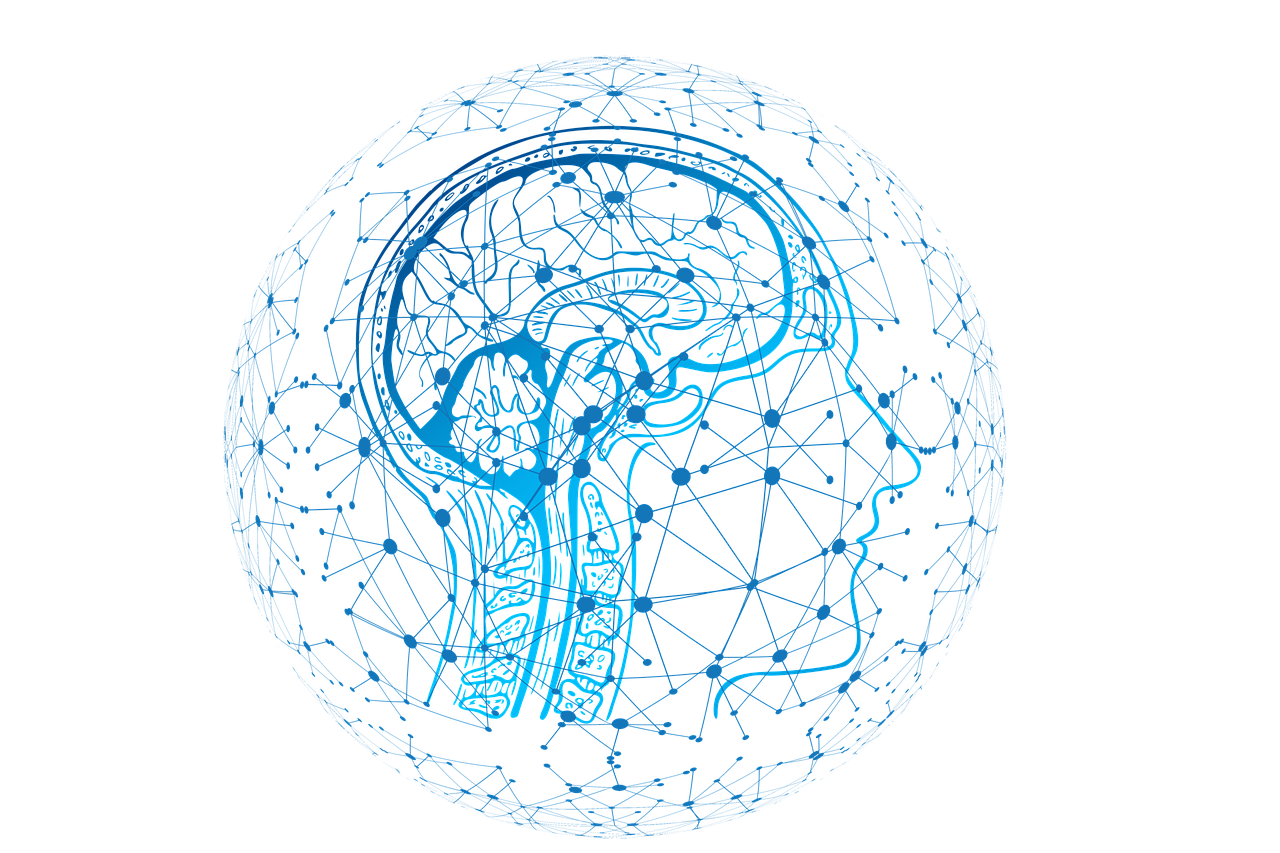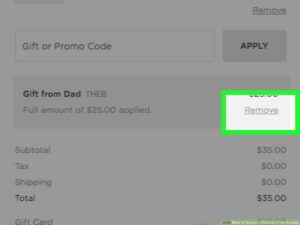Machine learning is a valuable tool for marketing research that can provide accurate and actionable insights. Marketing research is an essential aspect of any successful marketing strategy, as it helps businesses understand their target audience, identify trends, and make data-driven decisions.
Machine learning, a subset of artificial intelligence, is revolutionizing the field of marketing research by automating data analysis and uncovering patterns and insights that may have otherwise been overlooked. By analyzing vast amounts of data, machine learning algorithms can identify customer preferences, predict consumer behavior, and optimize marketing campaigns.
This technology empowers marketers to make informed decisions based on data-driven insights, resulting in more effective marketing strategies and improved return on investment (ROI). We will explore how machine learning is reshaping marketing research and discuss its benefits and implications for businesses.
Understanding The Power Of Machine Learning In Marketing Research
Discover the immense power of machine learning in revolutionizing marketing research. Experience the benefits of using advanced algorithms to extract valuable insights and make data-driven decisions for your marketing campaigns.
Machine learning, a subset of artificial intelligence, has been revolutionizing the field of marketing research. With its ability to analyze vast amounts of data and make data-driven predictions, machine learning is transforming the way businesses understand their customers and make informed decisions. In this post, we explore how machine learning is revolutionizing marketing research, the benefits of using machine learning for data-driven insights, and real-life examples of successful machine learning applications in marketing research.
How Machine Learning Is Revolutionizing Marketing Research
Machine learning is changing the game in marketing research by enabling businesses to extract valuable insights from the vast amount of data they collect. Traditional marketing research methods often rely on manual analysis, which is time-consuming and prone to human error. Machine learning algorithms, on the other hand, can process data at a much faster rate, identify patterns, and generate predictive models.
In addition, machine learning can uncover hidden relationships and correlations in data that may not be immediately apparent to human analysts. By leveraging advanced algorithms, businesses can gain a deeper understanding of customer behavior, preferences, and market trends, allowing them to make more informed marketing decisions.
The Benefits Of Using Machine Learning For Data-driven Insights
The use of machine learning in marketing research offers several benefits:
- Enhanced Data Analytics: Machine learning algorithms can analyze large datasets quickly and accurately, providing businesses with valuable insights in real-time.
- Predictive Modeling: By training machine learning models on historical data, businesses can make accurate predictions about customer behavior, market trends, and sales performance.
- Improved Personalization: Machine learning enables businesses to create personalized marketing campaigns and targeted promotions by understanding individual customer preferences and behavior.
- Cost and Time Savings: Automating data analysis with machine learning eliminates the need for manual processing, reducing costs and saving valuable time for marketing researchers.
Real-life Examples Of Successful Machine Learning Applications In Marketing Research
Machine learning has already proven its value in marketing research across various industries. Here are a few examples:
| Industry | Use Case |
|---|---|
| Retail | Machine learning algorithms are used to analyze customer browsing behavior, purchase history, and social media data to personalize recommendations and optimize pricing strategies. |
| Finance | Machine learning models are employed to detect fraudulent activities by analyzing transaction data and identifying patterns indicative of fraudulent behavior. |
| Healthcare | Machine learning algorithms help identify patterns in patient data to predict disease outcomes, recommend personalized treatments, and improve patient care. |
In conclusion, machine learning is revolutionizing marketing research by enabling businesses to extract valuable insights from vast amounts of data. The benefits of using machine learning for data-driven insights include enhanced data analytics, predictive modeling, improved personalization, and cost and time savings. Real-life examples across industries highlight the successful application of machine learning in marketing research. As businesses continue to adopt machine learning technologies, the field of marketing research will undoubtedly evolve, empowering organizations to make smarter, more data-driven marketing decisions.
Applying Machine Learning Algorithms For Data Analysis
Discover the power of machine learning algorithms in marketing research for efficient data analysis. Enhance your marketing strategies and gain valuable insights from your data to drive better business decisions.
Exploring Popular Machine Learning Algorithms For Marketing Research
Machine learning algorithms play a vital role in extracting meaningful insights from vast amounts of data, making them indispensable for marketing research. By leveraging the power of machine learning, marketers can gain valuable insights into consumer behavior, predict customer preferences, and optimize marketing campaigns. Let’s explore some of the popular machine learning algorithms that are widely used in marketing research.
Understanding The Role Of Data Preprocessing In Machine Learning
Data preprocessing is a critical step in machine learning that involves transforming raw data into a clean and structured format suitable for analysis. This process involves handling missing values, dealing with outliers, and normalizing data to ensure accurate results. By preprocessing the data, marketers can eliminate noise, reduce bias, and improve the performance of machine learning models. It sets the foundation for effective analysis and enables marketers to extract valuable insights that drive informed marketing decisions.
Applying Supervised And Unsupervised Learning Techniques For Marketing Insights
Supervised and unsupervised learning techniques are two fundamental approaches used in machine learning for marketing insights.
Supervised learning
Supervised learning involves training a model using labeled data, where the desired outcome is already known. Marketers can utilize supervised learning algorithms such as linear regression, decision trees, and support vector machines to predict customer behavior, forecast sales, or estimate customer lifetime value. The model learns from historical data and applies the acquired knowledge to make accurate predictions or assist in decision-making processes.
Unsupervised learning
Contrary to supervised learning, unsupervised learning techniques are employed when the data is unlabeled or when the goal is to explore patterns and discover hidden insights. Clustering algorithms like k-means or hierarchical clustering can help marketers segment customer profiles based on similarities in their preferences or behavior. Association rule mining algorithms like Apriori can identify patterns between products, enabling marketers to develop personalized cross-selling or upselling strategies. Unsupervised learning techniques open avenues for marketers to uncover valuable insights that may have otherwise gone unnoticed.
By embracing machine learning algorithms and techniques, marketers can supercharge their marketing research efforts and gain a deeper understanding of their target audience. From analyzing customer behavior to segmenting audiences and predicting future trends, the application of machine learning transforms marketing research into a data-driven and predictive endeavor.
Leveraging Machine Learning For Customer Segmentation
One of the key challenges in marketing research is understanding and reaching the right target audience. This is where machine learning, a subfield of artificial intelligence, comes in. Machine learning algorithms can analyze large amounts of data and identify patterns and trends that may not be easily detectable by humans. One important application of machine learning in marketing research is customer segmentation, which involves organizing customers into specific groups based on their characteristics, behaviors, or preferences.
H3using Machine Learning To Identify And Target Customer Segments/h3 |
Machine learning algorithms can effectively identify and target customer segments by examining a variety of data points. By analyzing customer demographics, browsing history, purchase behavior, and social media activity, machine learning models can discover underlying patterns and group customers accordingly. This enables marketers to tailor their messaging and offers to specific segments, resulting in more personalized and impactful campaigns. By leveraging machine learning, businesses can optimize their marketing efforts and maximize return on investment.
H3how Clustering Algorithms Can Improve Customer Profiling And Targeting/h3 |
Clustering algorithms play a vital role in customer segmentation using machine learning. These algorithms can identify natural groupings within customer data, allowing marketers to create distinct customer profiles. By applying clustering algorithms, such as K-means or hierarchical clustering, marketers can gain deeper insights into customer preferences and behavior. For example, a clustering algorithm may reveal that there are specific groups of customers with similar shopping habits or interests. This knowledge can help marketers customize their offerings, promotions, and advertisements to better meet the needs and preferences of each targeted cluster.
H3case Studies On Successful Customer Segmentation Using Machine Learning/h3 |
Several businesses have successfully implemented machine learning algorithms for customer segmentation, achieving remarkable results. One such case study is a leading e-commerce company that utilized machine learning to segment its customers based on their browsing behavior, purchase history, and preferences. By leveraging this segmentation, the company was able to devise highly targeted marketing campaigns that yielded a significant increase in customer engagement and conversion rates. Another case study involves a telecommunications company that employed machine learning techniques to segment its customers based on their usage patterns and preferences. This segmentation allowed the company to better tailor their service plans and promotional offers, resulting in improved customer satisfaction and retention.
- Machine learning-driven customer segmentation can revolutionize marketing research by enabling businesses to identify and target specific customer groups.
- Clustering algorithms enhance customer profiling and targeting by identifying natural groupings within customer data.
- Real-life case studies demonstrate the effectiveness of machine learning in customer segmentation and the positive impact it can have on marketing efforts.
Optimizing Marketing Campaigns With Predictive Analytics
Optimize marketing campaigns by leveraging predictive analytics and machine learning for market research. Gain valuable insights to enhance marketing strategies and achieve better results.
Predictive Analytics And Its Role In Optimizing Marketing Campaigns
When it comes to optimizing marketing campaigns, businesses are constantly seeking new strategies and tools to gain a competitive edge. One powerful solution that has emerged in recent years is predictive analytics. This cutting-edge technology leverages the power of machine learning to analyze vast amounts of data and make accurate predictions about future customer behavior.
Using Machine Learning For Predictive Modeling And Forecasting
Predictive analytics relies heavily on machine learning algorithms to uncover patterns and relationships within data sets, allowing businesses to anticipate customer preferences and forecast outcomes. By analyzing historical customer behavior and other relevant data points, machine learning models can identify key factors that drive campaign success. These factors may include customer demographics, browsing habits, previous purchases, or even external factors such as seasonality or economic trends.
Examples Of Successful Marketing Campaign Optimization Using Predictive Analytics
Many businesses have already embraced predictive analytics to optimize their marketing campaigns and have witnessed impressive results. Let’s take a look at a few examples:
| Company | Campaign | Results |
|---|---|---|
| XYZ Clothing | Summer Collection Launch | Increased conversion rate by 20% by targeting customers based on purchase history and browsing behavior. |
| ABC Electronics | Holiday Promotions | Doubled sales through personalized email campaigns using predictive analytics to identify product preferences. |
- XYZ Clothing: By leveraging predictive analytics, XYZ Clothing was able to increase their conversion rate by 20% during their Summer Collection Launch campaign. By targeting customers based on their purchase history and browsing behavior, they delivered personalized marketing messages that resonated with their audience.
- ABC Electronics: ABC Electronics utilized predictive analytics to double their sales during holiday promotions. By analyzing customer data and identifying product preferences, they created highly effective email campaigns that provided personalized recommendations to each recipient. This targeted approach proved to be a game-changer for optimizing their marketing efforts.
These examples demonstrate the immense potential of predictive analytics in optimizing marketing campaigns. By harnessing the power of machine learning and leveraging data-driven insights, businesses can tailor their marketing strategies to individual customer preferences, boost conversions, and drive revenue growth.
Enhancing Personalization In Marketing With Recommender Systems
Personalization in marketing has become a buzzword in recent years, with businesses striving to deliver tailored experiences to their customers. With the advent of machine learning technologies, marketers now have powerful tools at their disposal to meet this demand. One such tool is recommender systems, which leverage machine learning algorithms to provide accurate recommendations based on user data. In this article, we will explore the role of recommender systems in marketing personalization, how machine learning enables accurate recommendations, and successful implementation strategies.
The Role Of Recommender Systems In Marketing Personalization
Recommender systems play a vital role in enhancing personalization in marketing. These systems analyze vast amounts of user data, including browsing history, purchase behavior, and demographic information, to offer personalized product or content recommendations. By understanding customer preferences and patterns, recommender systems enable businesses to deliver targeted marketing campaigns, increase customer satisfaction, and drive sales conversion rates.
How Machine Learning Enables Accurate Recommendations
Machine learning lies at the heart of accurate recommendations provided by recommender systems. Through the use of complex algorithms, machine learning models are trained to understand and predict individual preferences based on historical data. These models learn from patterns, trends, and similarities among users, allowing the system to make personalized recommendations with precision.
By continuously refining their algorithms, machine learning-powered recommender systems improve their accuracy over time. They can adapt to changing user behavior and preferences, ensuring that the recommendations provided remain relevant and valuable.
Successful Implementation Of Recommender Systems In Marketing
Implementing recommender systems effectively is crucial to leveraging their full potential in marketing. It starts with collecting and storing the right dataset, encompassing essential user information and historical interactions. Additionally, integrations with other marketing platforms, such as content management systems (CMS) and customer relationship management (CRM) software, facilitate seamless utilization of recommender systems in marketing campaigns.
Successful implementation also requires ongoing monitoring and optimization of the recommender system’s performance. Regular data analysis, A/B testing, and tracking of key metrics such as click-through rates and conversion rates allow marketers to understand the effectiveness of recommendations and make necessary adjustments.
In conclusion, recommender systems powered by machine learning have emerged as invaluable tools in enhancing personalization in marketing. By leveraging user data, these systems enable businesses to deliver personalized experiences, increase customer satisfaction, and ultimately drive revenue growth. With the right implementation strategies and continuous optimization, marketers can harness the power of recommender systems to stay ahead in the competitive landscape.
Frequently Asked Questions On Machine Learning For Marketing Research
How Can Machine Learning Benefit Marketing Research?
Machine learning can benefit marketing research by providing valuable insights into customer behavior, preferences, and trends. It can analyze large amounts of data quickly, identify patterns, and make predictions, enabling marketers to make data-driven decisions and tailor their strategies to target specific customer segments effectively.
What Are Some Applications Of Machine Learning In Marketing Research?
Machine learning can be used in marketing research for various applications, including customer segmentation, predictive modeling, sentiment analysis, recommendation systems, and personalized marketing. By leveraging machine learning algorithms, businesses can gain insights into customer preferences, behavior, and buying patterns to optimize their marketing campaigns and improve customer satisfaction.
How Does Machine Learning Improve Customer Profiling In Marketing Research?
Machine learning improves customer profiling by analyzing large datasets and uncovering patterns and relationships that traditional methods may miss. It can identify customer preferences, segment customers based on their characteristics and behavior, and predict their future actions. This enables marketers to create targeted campaigns, offer personalized experiences, and improve customer satisfaction and loyalty.
Conclusion
Machine learning has revolutionized the field of marketing research, empowering businesses to gain deeper insights into consumer behavior and preferences. By leveraging advanced algorithms and data analysis techniques, machine learning enables marketers to uncover hidden patterns, make more accurate predictions, and tailor their strategies for maximum impact.
With its ability to process vast amounts of data quickly and efficiently, machine learning is poised to drive innovation and success in the marketing industry. Embracing this technology will undoubtedly open doors to new possibilities and fuel future growth. Experience the power of machine learning and elevate your marketing efforts to the next level.




